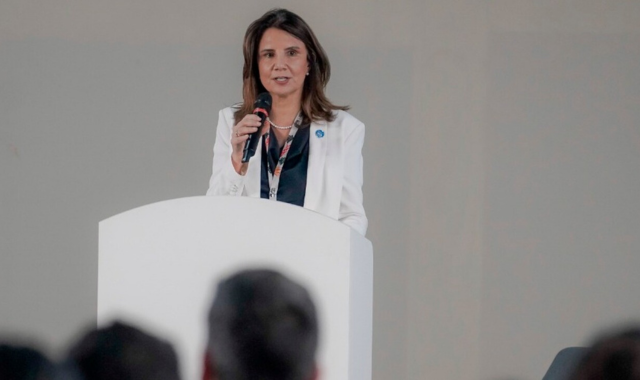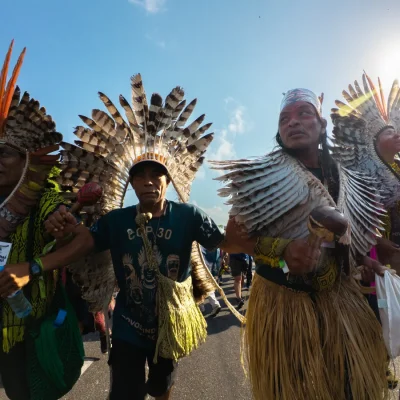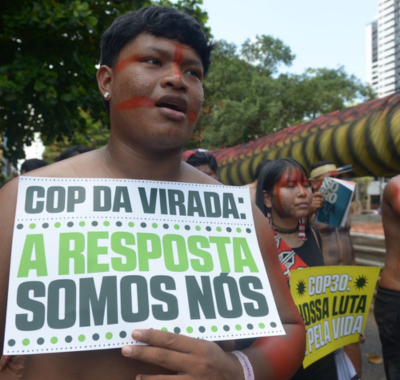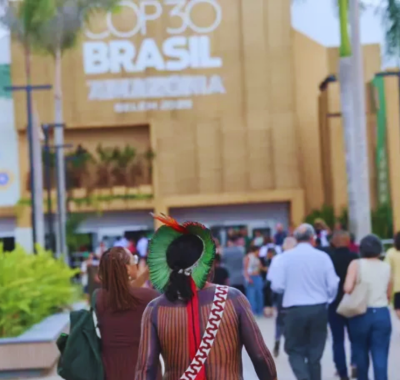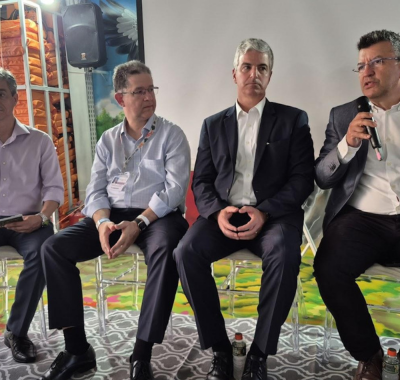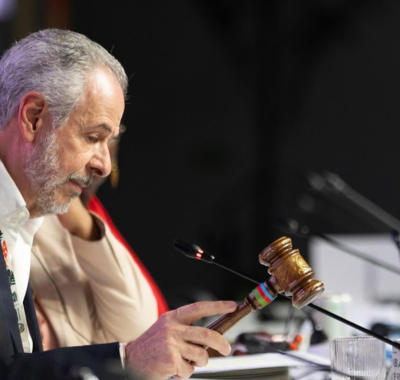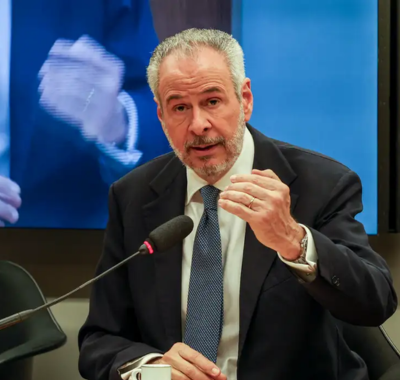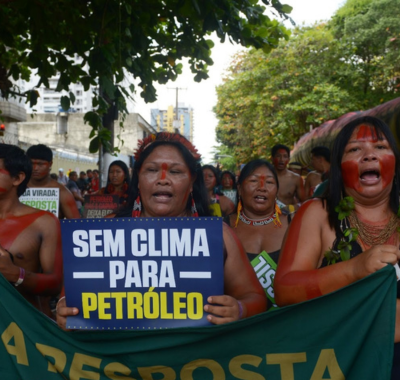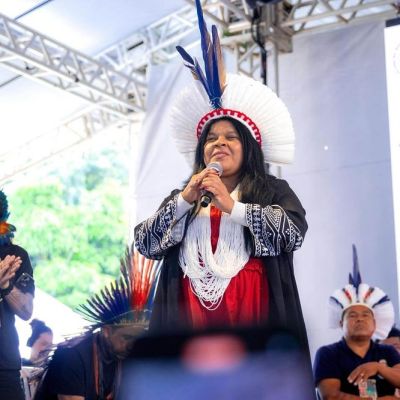By Fred Santana
COP30 CEO Ana Toni ended the first day of the conference on Monday, November 10, with a direct message: “This is the COP of implementation.” Alongside the Minister of Management and Innovation in Public Services, Esther Dweck, and the Deputy Secretary-General of the International Telecommunication Union (ITU), Tomas Lamanauskas, she highlighted, in a press conference, the role of technology in accelerating concrete solutions to the climate crisis.
According to Ana Toni, the opening of the official agenda on the first day was a symbolic and practical milestone for the event. “In the last four COPs, we were unable to even open the agenda on the first day. Today, that happened. It seems small, but it is the real beginning of the technical work that unlocks 145 topics for negotiation,” she said.
The CEO explained that the focus of the Brazilian presidency is to “move beyond rhetoric and show results.” She highlighted that the event will be marked by announcements aimed at implementing and accelerating measures in all areas of climate action — mitigation, adaptation, and financing.
Ana Toni also announced that 111 countries have submitted their Nationally Determined Contributions (NDCs) — a significant jump from the 64 registered a few weeks ago during the UN meeting in New York. For her, this progress demonstrates that “the Paris Agreement and multilateralism are alive.”
Among the examples of ongoing implementation, Toni highlighted the Loss and Damage Fund, created at COP28, which launched a call for US$ 250 million for climate disaster response projects. New initiatives involving local governments, multilateral organizations, and private funds focused on technological solutions for agricultural adaptation and food resilience were also mentioned, including a $2.8 billion contribution announced by foundations and international agencies.
The CEO stated that technology and innovation are essential tools for climate adaptation to reach a global scale. “It is impossible to think about adaptation without technology. We need to connect warning systems, smart agriculture, and public services to respond to crises quickly,” she said.
Ana Toni mentioned the Green Digital Action Hub among the day’s launches, with 82 countries and over 800 organizations joining, as well as new professional training platforms, climate intelligence, and open-source software for environmental management.
Minister Esther Dweck emphasized the practical nature of COP30. “This is the COP of solutions. It is time to turn debate into scalable action,” she said. According to her, Brazil is presenting a digital public infrastructure (DPI) model as a tool for rapid and inclusive responses to climate disasters.
Dweck recalled that the national digital identification system allowed the federal government to release emergency aid in just six days to families affected by floods in the south of the country. “This type of infrastructure allows for quick and effective financial responses to climate crises, and that is what we want to expand globally,” she explained.
The minister also announced that Brazil’s Rural Environmental Registry (CAR) is being transformed into an open digital platform, considered the largest database of private forests in the world, covering 80% of the national territory. The system will be offered as a digital public good and can be replicated by other countries.
Among the international initiatives launched in Belém is the DPI for People and Planet challenge, created by the COP30 presidency in partnership with JICA, CoDevelop, and the Digital Public Goods Alliance, with more than 540 proposals from 70 countries for the use of digital technologies in energy transition, green mobility, forest monitoring, and disaster resilience.
The Deputy Secretary-General of the ITU, Tomas Lamanauskas, pointed out that the digital sector is one of the central pillars of this transformation, but also faces contradictions. “Technology is essential for monitoring and mitigating climate change, but it also needs to be sustainable. The digital sector accounts for around 4% of global emissions and 2% of global electricity consumption,” he noted.
Lamanauskas argued that the digital industry should reduce its carbon footprint and electronic waste disposal, while expanding access to clean technologies and early warning systems in developing countries.
At the end of the press conference, Ana Toni stated that COP30 wants to mark the beginning of a new cycle. “This is the COP where the world needs to prove it can implement what it promised. Technology is the link that can turn commitments into reality,” she said.
—
This report was produced by Revista Cenarium, through the Collaborative Socio-environmental Coverage of COP 30. Read the original report at: https://revistacenarium.com.br/ceo-da-cop30-diz-que-evento-em-belem-e-de-implementacao/ .

